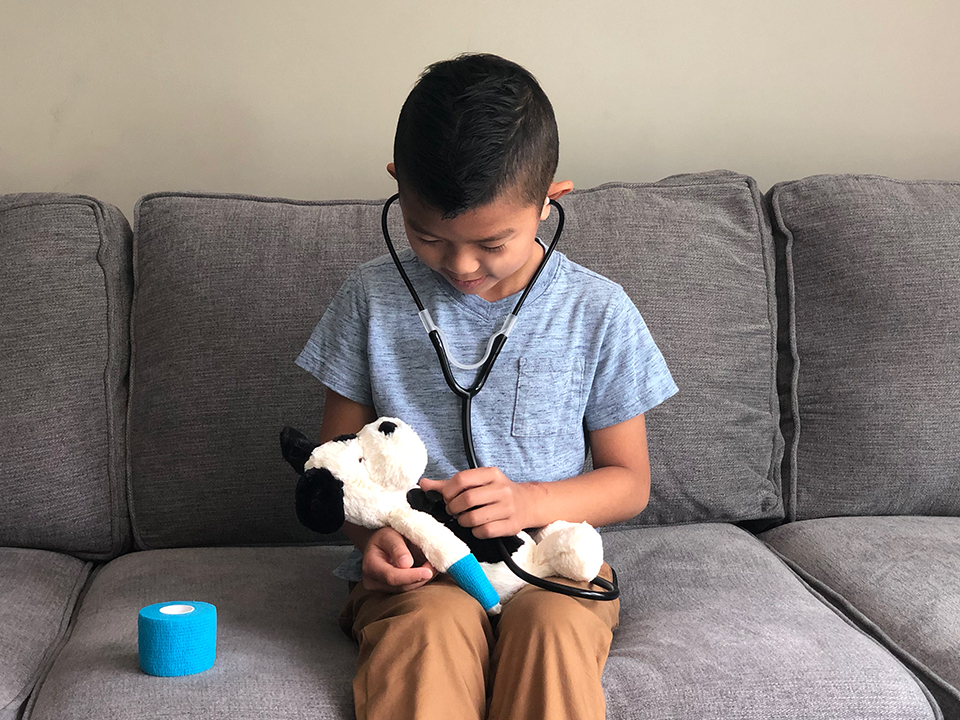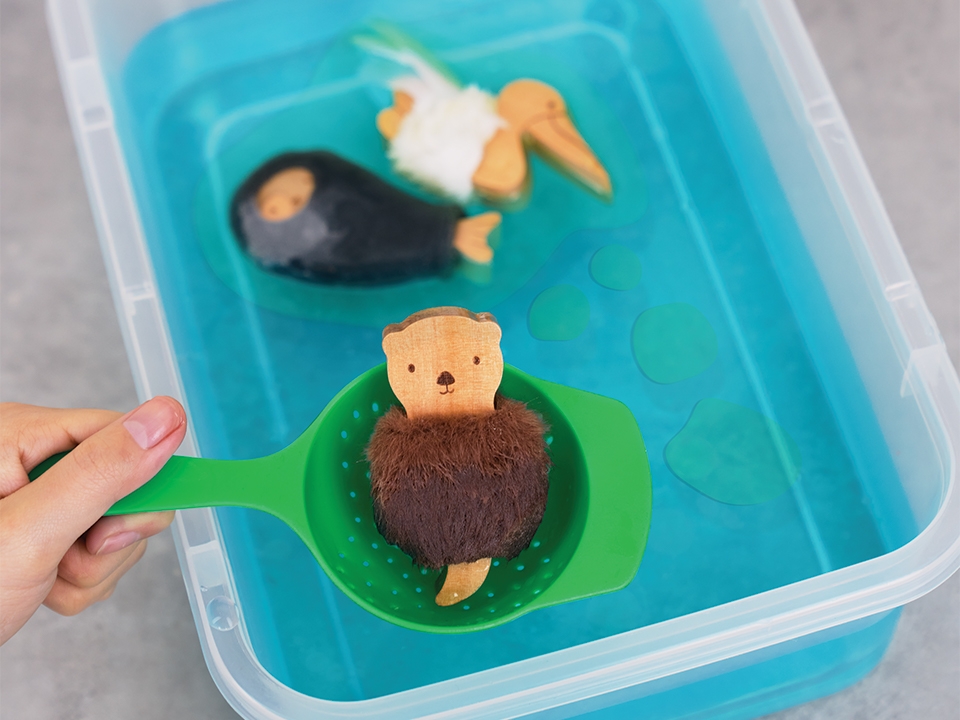1. Social & emotional development
Pretend play gives children the opportunity to step into someone else's shoes and see the world through different eyes. Through perspective taking, children reflect on how others might think and feel in a specific situation, and in turn, understand their emotions. It also strengthens their growing ability to cooperate and communicate with others!
Try this at home: Encourage your child to think of creative scenarios for imaginative role play! Whether it’s pretending to be a teacher for their toys, or running a cafe from the living room, this activity will help your child learn to empathize with people in different situations from their own.

2. Problem-solving
Pretend play allows kids to try new ideas and reason through challenges. Acting out a scenario repeatedly helps kids practice thinking through a problem and working through potential solutions. By engaging in pretend play, kids work through small challenges more efficiently, and as a bonus, they may even become less impulsive. This practice is great for strengthening attention span and memory.Try this at home: A fun way to try this out at home is to pretend the floor in your home is lava. Not only is it oodles of fun for your child to stand on things they normally wouldn’t, coming up with new ways to get across a space will help them learn to think creatively when presented with challenges.

The Environmental Science: Oil Cleanup is perfect for a child who is interested in marine life. Through hands-on activities, kids learn how oil affects oceans and the critters that live in them. And they’ll practice problem-solving skills by exploring different ways to clean up spilled oil — from scooping it up to trapping it in a floating boom.
3. Self-regulation
Self regulation in children is the ability to monitor and manage their own thoughts, feelings, and behaviors effectively in various situations. Children with self-regulation skills are able to identify where they need help, find solutions, regulate emotions and behaviors, as well as navigate adversity. Pretend play has been shown to help children stay calm and manage anxiety in stressful situations.
Try this at home: Gather three toys or objects around your home and invite your child to create a story about them. Regardless of what they come up with, the act of imaginative storytelling will help them develop their ability to self-regulate..jpg)
Our Fort Builder Kit encourages endless hours of pretend play and story building. Kids can channel their inner architect and create a place that’s all their own—whether a cave, a clubhouse, or a castle. Complete with sturdy wooden poles and strong-but-flexible connectors, the Fort Builder Kit makes building play fort structures a breeze.
The best thing about supporting pretend play with your child is that the more room they have to lead, the more enriching it can be. So while it can be helpful to guide them in the right direction, try not to limit the scope of their creativity. Children are so naturally imaginative, sometimes it’s best just to follow their lead!
Check out more pretend play inspired products on the KiwiCo Store!
